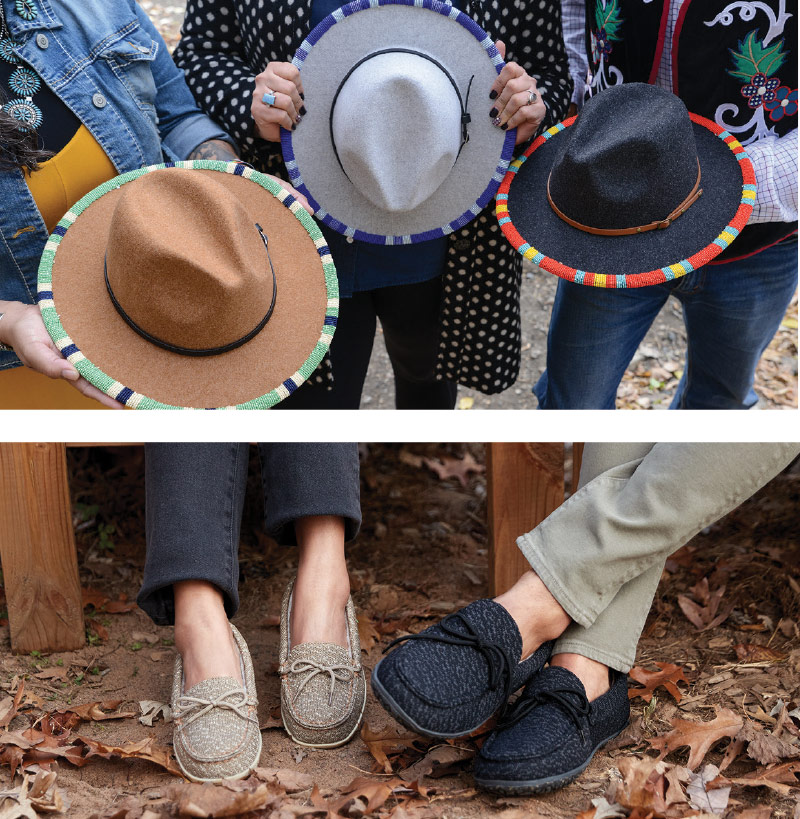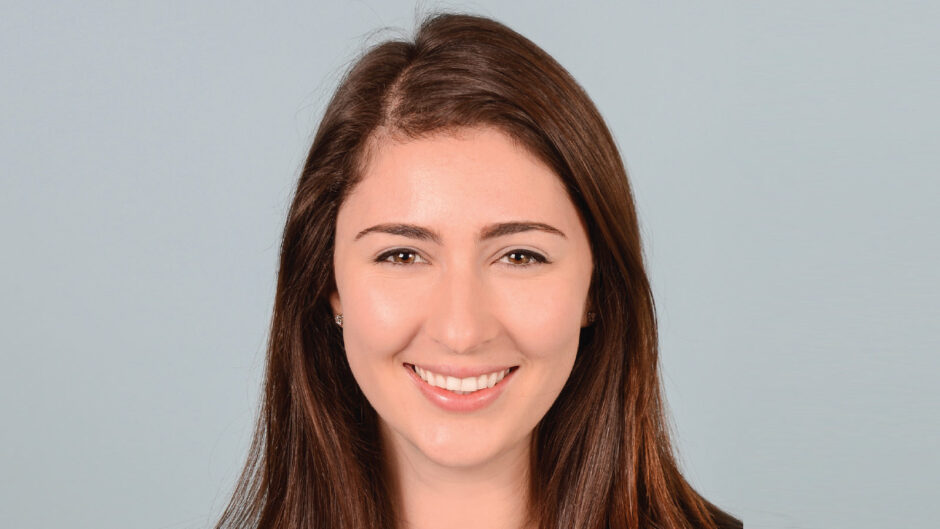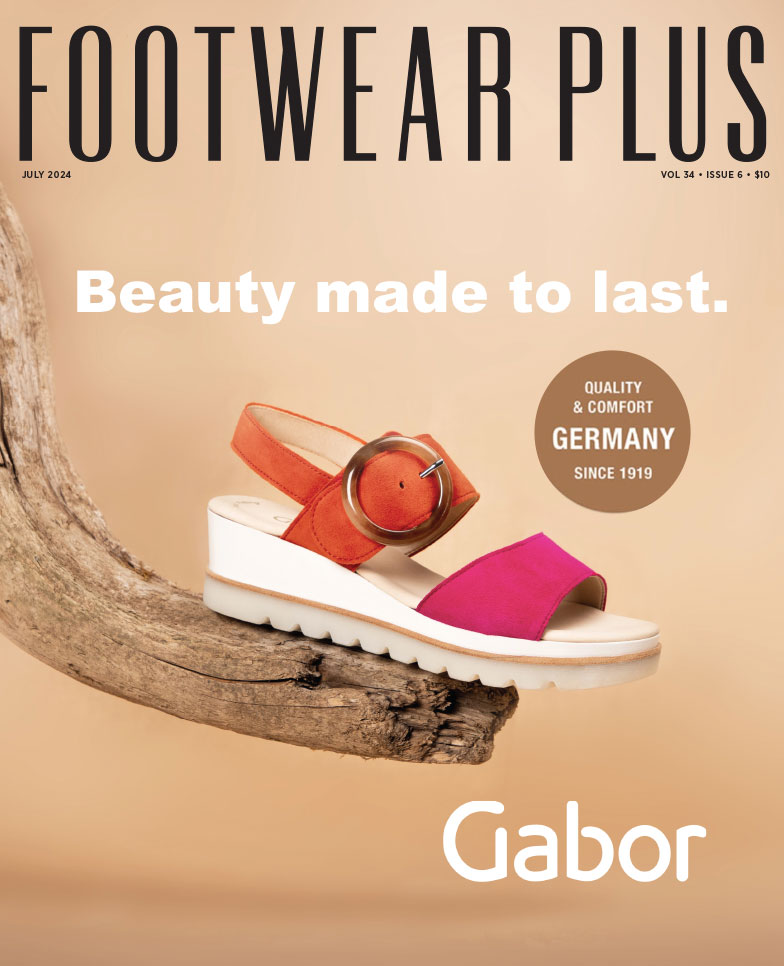 When Jori Miller Sherer was promoted to president of Minnetonka in December 2019 the world was quite a different place. In fact, the fourth-generation family member of the 75-year-old company joined her father, CEO David Miller, in the C-suite with a relatively modest initial goal: to meet with every employee individually to get the lay of the land. Miller Sherer wasn’t looking to reinvent the wheel. Former president Scott Sessa, the first non-family member in the company’s history to hold that position, had moved on after a successful run, and the new president wanted to focus first on what was working well (slippers) and getting everybody rowing together before formulating any strategic growth plans. There was no rush. Minnetonka’s business was solid. Life was good.
When Jori Miller Sherer was promoted to president of Minnetonka in December 2019 the world was quite a different place. In fact, the fourth-generation family member of the 75-year-old company joined her father, CEO David Miller, in the C-suite with a relatively modest initial goal: to meet with every employee individually to get the lay of the land. Miller Sherer wasn’t looking to reinvent the wheel. Former president Scott Sessa, the first non-family member in the company’s history to hold that position, had moved on after a successful run, and the new president wanted to focus first on what was working well (slippers) and getting everybody rowing together before formulating any strategic growth plans. There was no rush. Minnetonka’s business was solid. Life was good.
Besides, Miller Sherer had plenty on her plate in those early weeks as president. Another busy selling season was fast approaching—one that would require her to attend the usual gauntlet of trade shows as well as meet with key accounts across the country. Just squeezing in meetings with the company’s approximately 90 employees (between the main office and warehouse) soon proved challenging. Nonetheless, Miller Sherer, a good multi-tasker who honed her skills during the previous decade working in the company’s sales and product divisions, made decent headway with her meetings as another long Minnesota winter wore on into March.
Then the world changed. The Covid-19 pandemic hit and even the best-laid plans were put on hold as management went into crisis mode to keep the company operating amid a nationwide lockdown. The shock was all too real.
“Who can even remember a time before Covid,” Miller Sherer says. “Overnight, retail basically just shut down and half of our sales evaporated.” But the company pulled together and responded to every curveball thrown its way, she says. “We completely changed how we do business—shifting to a hybrid work format, reorganizing our warehouse so our employees could be safe and dealing with the ongoing global supply chain crisis,” she says. “For us, it’s absolutely been the most challenging two years in our history.”
Dealing with the initial fallout from the pandemic was tough enough. Then, shortly into the crisis, George Floyd was murdered in Minnetonka’s backyard of Minneapolis. It brought more disruption, as well as soul searching. For Miller Sherer, Floyd’s death was an ugly reminder of the inequities that still exist in this country. It also prompted the company to formally acknowledge its appropriation of Native American culture. “Our family had been talking about doing this for years,” Miller Sherer says. “But we were paralyzed by the fear of taking the first step—the fear of a negative backlash.”
Not anymore. Miller Sherer says her family decided the positives of addressing the issue far outweighed the negatives. And they decided it was best to be proactive, especially in an increasingly woke world. “There wasn’t some big viral moment, thankfully,” Miller Sherer says, noting that the management team is grateful it had time to listen and learn before crafting its comprehensive plan. The more she and the team looked into the issue and came to understand it, the more convinced she was that making changes was the right thing to do. She credits frequent meetings with representatives of the Native American community for helping to shine a light on how appropriation negatively impacts them. After the team did their research, there was no going back. “Once you start to understand what appropriation means, you can’t unlearn that,” Miller Sherer says. “That’s why being genuine about this is very important to us.”

In the summer of 2020, Minnetonka posted a “long overdue” apology on its website to the Native American community for its appropriation. That fall, Minnetonka posted a plan to recognize and support Native American communities going forward. It also altered its corporate logo, removing Native American–inspired symbols above and below the letter “T.” Then, after more listening and learning, on Indigenous Peoples’ Day of this year (Oct. 11), Minnetonka announced a comprehensive plan titled “Our Commitment to the Native American Community.” Highlights include the hiring of Adrienne Benjamin as the company’s Reconciliation Advisor. An artist and community activist who is Anishinaabe and a member of the Mille Lacs Band of Ojibwe, Benjamin has been integral in crafting Minnetonka’s plan—one that involves five key commitments to the Native American community.
Those commitments are: 1. Making a concerted effort to improve diversity, equity and inclusion of underrepresented groups at Minnetonka. 2. Updating the language used in telling Minnetonka’s story and describing its products so as to provide greater transparency and more direct acknowledgment of Native American influences across its website, packaging and communication channels. 3. Collaborating with local Native American artists/designers on collections. (Benjamin will be the first, with a capsule collection launching this month.) 4. Seeking out more Native American–owned businesses as partners for everything from footwear materials to packaging to paper products. 5. Supporting Native American organizations doing important work in Minnesota and beyond.
Indeed, Minnetonka’s plan is a far cry from the usual one-time financial contribution companies tend to make as an apology. Their new approach is not a publicity stunt or a smokescreen, Miller Sherer affirms. The plan is a reset of the company’s corporate culture and outlines a “concrete” commitment to recognizing and supporting Native American communities, regardless of whether that is a hot-button issue now or in the future. “This is a ‘forever showing up better with this community’ plan, because it’s been part of the products that we have always made and we will continue to make,” she says.
There’s even more focus on the “right thing to do” at Minnetonka. Miller Sherer proudly states that this year the company has made sustainability a major initiative. Efforts include this winter’s launch of an eco-friendly slippers collection as well as Minnetonka’s first independent audit, which will serve as an annual sustainability report with target goals to lessen the company’s carbon footprint going forward. Once again, Miller Sherer says this isn’t a public relations ploy or, in this case, a green screen. Minnetonka is weaving a more sustainable business model into the fabric of daily operations, wherever and whenever feasible. “Whenever we do something, we do it because it matters and we want to be genuine about it,” Miller Sherer says. “Our eco-friendly slippers, for example, aren’t going to be a case where the tag is made of recycled paper and that’s it. Our commitment to becoming a more sustainable company goes way beyond that.”
Ushering in transformative company initiatives while handling everyday challenges requires balance and stamina. Miller Sherer admits that it can get pretty hectic at times, especially in an ongoing pandemic. But Minnetonka’s North Star is trying to do the right thing—and that provides solid footing as well as a rejuvenating sense of greater purpose. It also feels good. “We’re trying to be a positive force,” Miller Sherer says. “And, on a personal level, I know my kids will at least grow up with a totally different understanding of Minnetonka—starting with our relationship with Native American communities—as compared to the one I had. I’m very proud of that.”
Might addressing Minnetonka’s appropriation of Native American culture be the biggest undertaking the company has made in its history?
Definitely. I honestly think working on this topic is probably the most important thing I’ll do in my career. It’s a very big topic and conversation, and this is not a temporary effort.
What has been the feedback since announcing the plan in October?
We haven’t had a ton of retailer feedback, but our sales team has been bringing this up on their calls for at least the last six months. Beyond that, I think the country is becoming more aware of these types of issues in a way that’s very important. And all we can try and do is show up better as a company and try and do the right thing. Over time, people will be able to tell if we’re genuine or not. That’s fine. We’re a 75-year-old company, and we’re in this for the long haul. We’ll show that our commitment over time is real. And I think what we’ve learned from the recent press coverage following our announcement is that people see the genuineness of it. The reaction has been very positive overall, which is very encouraging. Of course, we’ll make some mistakes because we’re not perfect, but we’ll continue to do our best to keep listening and learning, which we still have a lot to do. In the meantime, our appropriation acknowledgement was long overdue, and we’re bringing the conversation into the open now because we feel like it was our responsibility not to be silent.
What do you say to the cancel crowd who may question the genuineness and/or timing of this initiative?
Trolls are going to troll, right? And while there’s a faction with a go woke or go broke mentality, to them I say we’re going to do what we think is right, and that’s all anyone can do. We care about issues over the long term and we care about building strong relationships. An overriding goal of ours is to try and do the right thing, even when it’s difficult.
Even with genuine intentions, there are risks, right?
Absolutely. I think there’s a risk any time you wade into waters like this, and we had no idea what the reaction would be once we announced our plan. Our being paralyzed by the fear of a negative backlash was real and had been for a while. And even though our appropriation wasn’t because of maliciousness—it was ignorance—it’s doesn’t matter, because in the end it’s not okay. Once you begin to understand what appropriation is, you can’t unlearn that. We’re doing this because we believe it’s the right thing to do.
How does this initiative go above and beyond, say, a financial donation?
A huge part of our initiative is about developing meaningful relationships, and we’ve met absolutely wonderful people during this whole process. They are not tokens to us; they’re very valuable relationships. We’ve learned so much from them, and we’re grateful we had time to develop relationships with members of the Native American community in crafting our plan. Our commitment to do business with more Native American-owned businesses and hiring Native Americans is already affecting a lot of parts in our business in a positive way. And when it comes to artist collaborations, the art is what we’ve appropriated so it makes sense that we’d have a special emphasis on that. We hope that collaborating with various Native American artists shines a light on them, and it won’t be a one-time thing.
Has this effort given you and the company a sense of added purpose?
Yes, which I think is really important. One aspect that has connected us deeply with Adrian Benjamin, our Reconciliation Advisor, is her belief in systematic change. That can be very hard to achieve. It can also be a very emotional and guilt-ridden process. But I’m just not sure what’s more worthwhile? It doesn’t mean I feel warm and fuzzies all day, but I know this effort is extremely important.
Not only can this effort improve Minnetonka’s moral compass, could it improve the products it makes going forward as well?
Sure, but we’ve had zero conversations about whether this effort will improve our sales or not. That’s not a factor.
It could also help attract talent as people want to work for companies that they believe align with their morals.
I totally agree. It will make us a better company in that way, as well.
Why is now also the time to address Minnetonka’s sustainability efforts?
The consumer has changed so much on this topic. It’s an expectation that companies are doing their best on this issue, and they want to know that they are. For example, our boxes have been made of recycled materials for many years, but we’ve never talked about that. We just felt that, yes, we should of course do that but we don’t need to shout about it. Well, now consumers want to know these things. I also think a lot of companies are dabbling in sustainability and, on the one hand, anything more sustainable is a benefit, but we want our efforts to be comprehensive and transparent. Hence, the annual sustainability report we’re working on this year. Like with our addressing our appropriation, we’re committed to this effort for the long haul. This is another forever initiative.
What are some of the features of the new eco-friendly collection?
Features include uppers made from recycled water bottles, rice husk incorporate into the soles and recycled packaging materials. The goal, going forward, is to incorporate some of these materials across our line. We’re learning a lot about best practices, but we’re by no means experts. This wasn’t part of our founding mission, like other companies who we admire. We have a lot to learn, especially with regards to sourcing. But we’re diving in. My cousin, who works on the production side, has been very involved in our sustainability efforts, along with our designer, director of marketing, myself, my dad…it’s all of us.
Alongside these two major initiatives is the elephant in the room: the pandemic. How is Minnetonka handling those related challenges?
This year has been very strong for us for a couple of key reasons. 1. A lot of people are still working remotely and, as such, slippers remain a strong category for us. And while the supply chain issues have affected us, we feel we’re in a pretty good position as our team has worked very hard to navigate it as best it can. We’re working with freight companies, we’re really close to our factory partners and internally everyone is touching these orders many, many times. We feel confident that we’ve been in a good inventory position this season, which we know not everybody is. I credit that, in part, to our ability to build inventory a little earlier and more liberally.
So not a lot of shipments languishing on container ships in the Pacific?
Not really. I mean, we do have some and we’re crossing all our fingers and toes that shipments will arrive on time. But we’ve done a pretty good job overall. Everybody who ships through our warehouse is in pretty decent shape, whereas some of our big customers that ship direct aren’t in as good a position. But we don’t have control over those shipments. And they’re the ones we’re more worried about because that could negatively impact 2022 for us. How much might get carried over because those retailers didn’t get their shipments in time?
Any sense when the supply chain issues might be resolved?
From what I’m hearing, next summer will be the earliest when things might get better.
Might 2021 have been actually more challenging than 2020?
That’s a tough question. Part of me thinks: Are we just frogs in a pot and don’t realize it’s about to boil? It’s hard to say. Fortunately, we have a great team and even though times are very challenging, when you’re really confidant in your team and everybody is working together, you at least feel like you have a shot.
Will the industry ever go back to a pre-pandemic normal in any way?
I don’t think things will all be exactly as they are now, but we won’t
go back to the way it was. The future will just be different.
But not all the changes brought on by the pandemic have necessarily been for the worse, right?
There have been some good changes, like the hybrid work model when possible. Being flexible with our office employees has been a huge improvement. Frankly, it makes me mushy how everyone in our company has done a beautiful job working remotely. If people hadn’t been devoted and done a great job, maybe we’d have gone back full time by now. But our people have been fantastic. And while there are plenty of people in our office each day, to know that you can be flexible—that you can pick up your kid at school and do the rest of your calls at home—has been a huge silver lining. I believe this work flexibility has changed forever for us.
Have consumers, by and large, forever changed how they work, shop, recreate, what they wear, etc.?
In many ways, yes. For example, it’s forced companies to ramp up their on-demand capabilities. Consumers really love flexibility, whether it’s how they work, how they can buy something online and pick it up in a store or how fast they can get something shipped. I think the pandemic has accelerated those on-demand shopping trends.
What is Minnetonka doing to meet these shifts in shopping habits?
Through the capabilities of our warehouse, which is fantastic and has been long before the pandemic. We ship fast, and that comes from a very honest place when, decades ago, our account list consisted mainly of independent gift stores mostly open Memorial Day to Labor Day. They would fax us orders on Sunday nights to fill in on what they sold over the weekend, and we’d ship on Monday to get it to them by the following Friday. We had to ship quickly because if they missed a weekend…those stores couldn’t make up that lost business. So fast shipping is in our bones. It’s why we’ve been well-positioned to maximize the drop-ship model, as well.
It’s safe to assume another strength of Minnetonka’s of late has been slippers.
Slippers has been a strong category for us for the last decade, really. Coming into 2020, we were already in a good position, offering high-quality slippers at a good price-value. Then the pandemic hit and it seemed like everybody else was focused on stopping the flow of product because of the uncertainty. However, we noticed early on that our ecommerce sales were rising. So we doubled down and kept ordering inventory, and when fall 2020 arrived we had great product available and our sales were fantastic. So 2020 overall was a success for us. It’s one of the great benefits of being privately owned—we can make decisions fast.
What are some other recent company improvements?
This year, we’ve updated all of our account agreements and invested in a new MAP compliance policy, which helps clean up all of our channels of distribution and makes sure our retailers represent the brand properly. It’s another example of investing in our brand for the long-term, which has been a big overall theme for us this year.
What’s Minnetonka’s outlook beyond slippers and moccasins?
We’re definitely planning to expand further beyond our core categories. Our Fall ’22 collection features more casual styles, and we’re excited to see where eco-friendly takes us going forward. While we’re not a “comfort” brand with lots of technologies, we’re considered casual and comfortable, which is a feeling consumers have about our brand. For example, our Home & Away slippers collection that we launched in the fall of 2019 are being worn more outside than inside. It’s been a really strong category for us and represents a good example of what we want to do going forward. We’ll definitely be focusing on products beyond the home—like our sandals collection that we’ve been making since 1999. We think of ourselves as a footwear brand—that happens to make hats, as well.
As a woman, do you bring a fresh perspective to Minnetonka’s executive team?
Sure, which is still a rarity within our industry overall, sadly. It’s been proven that having various perspectives in a leadership team is crucial to success. I think it’s an advantage for us, and I hope there will be more women reaching this position in our industry. Along those lines, I also think there’s an advantage of being a parent with young kids. Corporate leaders need to understand that their employees have full lives. Our president, for example, has a four year old and a two year old and the CEO is their grandfather. I think being understanding of those responsibilities is very important.
Is there any added pressure of being the fourth generation?
Not really. My cousin and I think we bring a fresh perspective and new ideas, as well as a desire to prove ourselves. That said, we have a legacy in our family where the older generation partners with the younger one and is generous about turning the business over eventually. Our legacy is a positive. This isn’t like that show Succession. (Laughs.)
What do you love most about your job?
Our employees, that every day is different and building on our company’s legacy. It’s really special to be part of a 75-year-old company. Being independently, family owned is a big part of who we are. A lot of footwear companies these days are owned by bigger companies, and more and more conglomerates are being formed. Not us. My dad and my grandfather, who still works here by the way, often joke: “We wouldn’t know what we’d do all day if we sold the company.” They tell that one to me all the time. •




